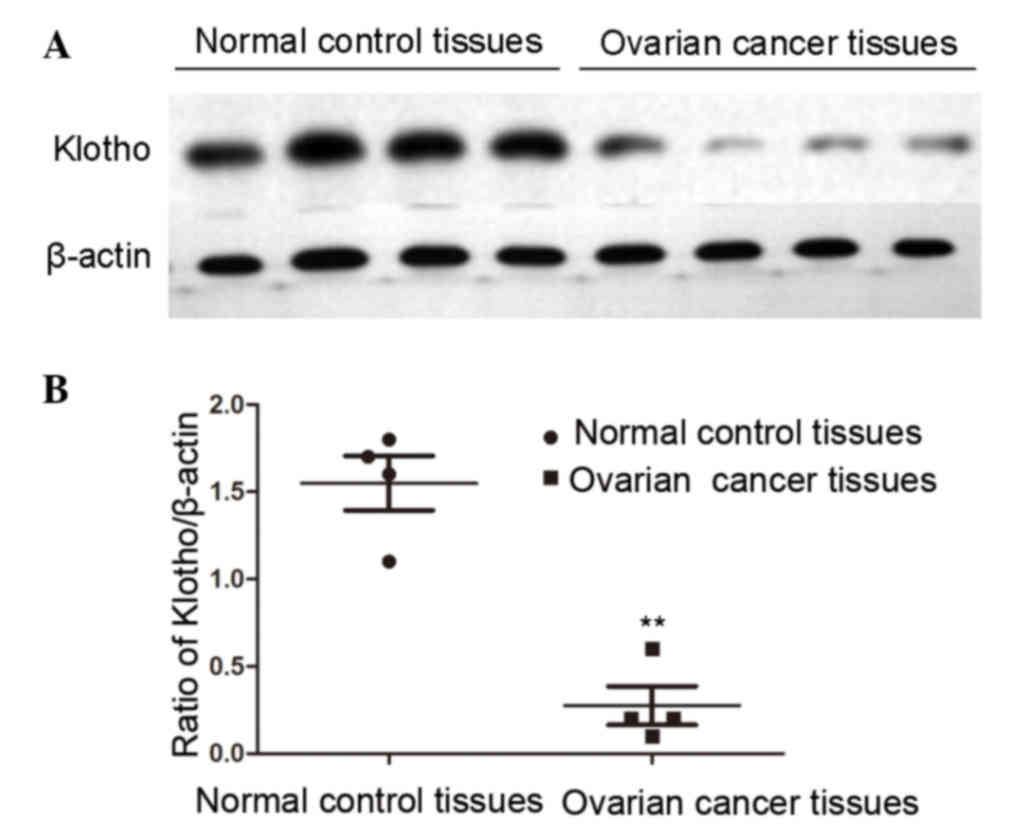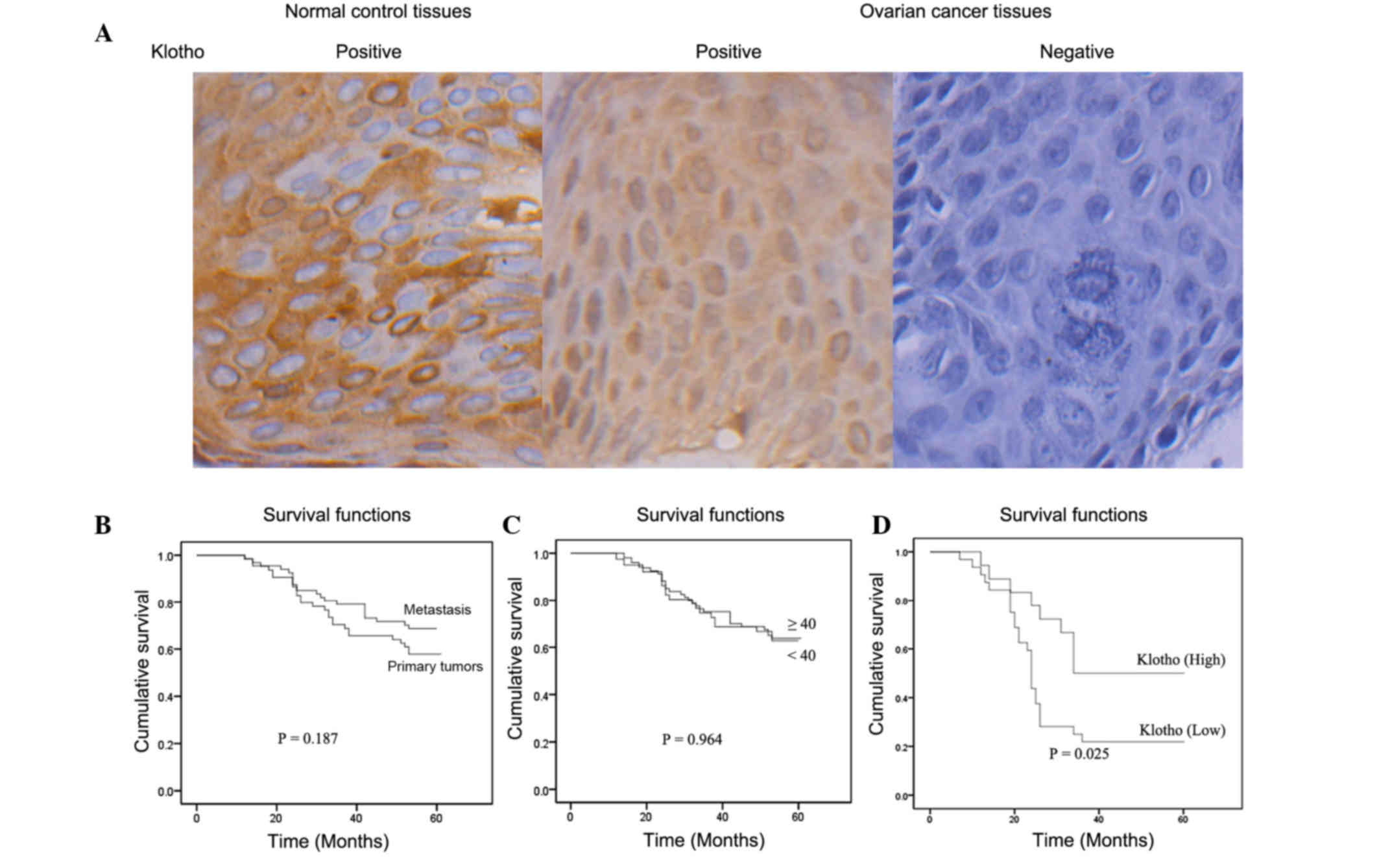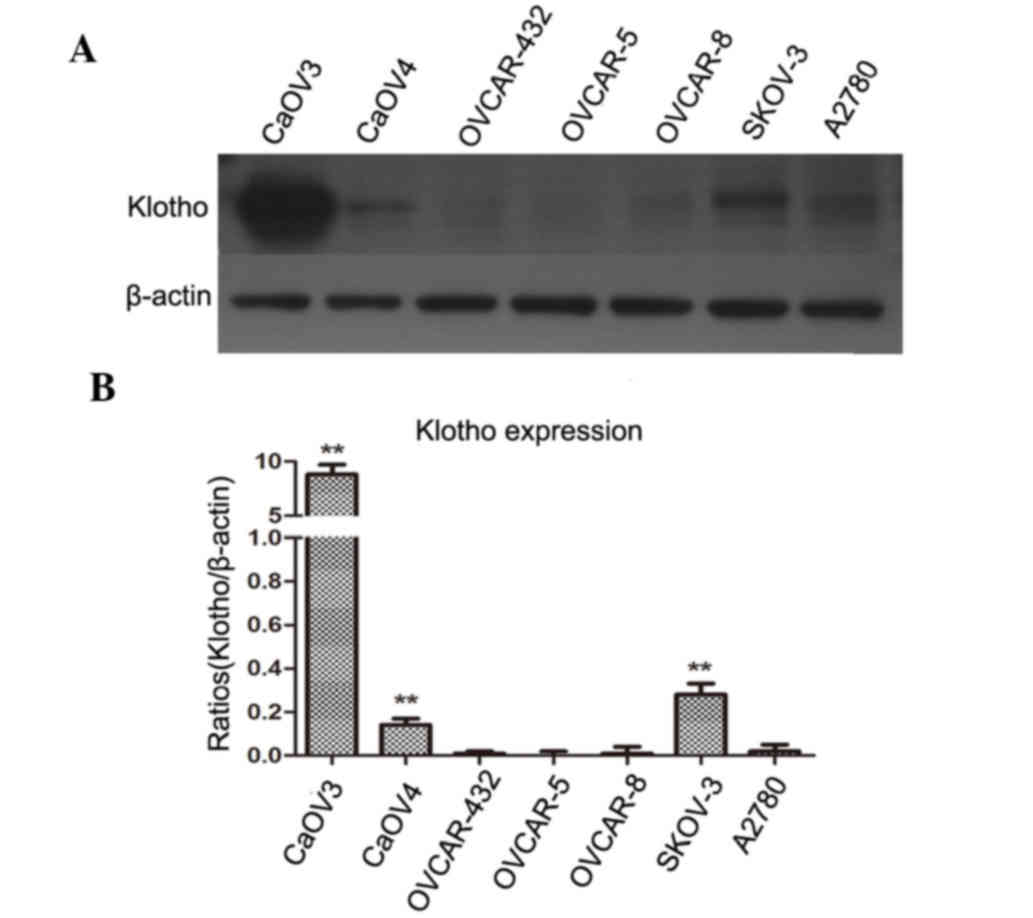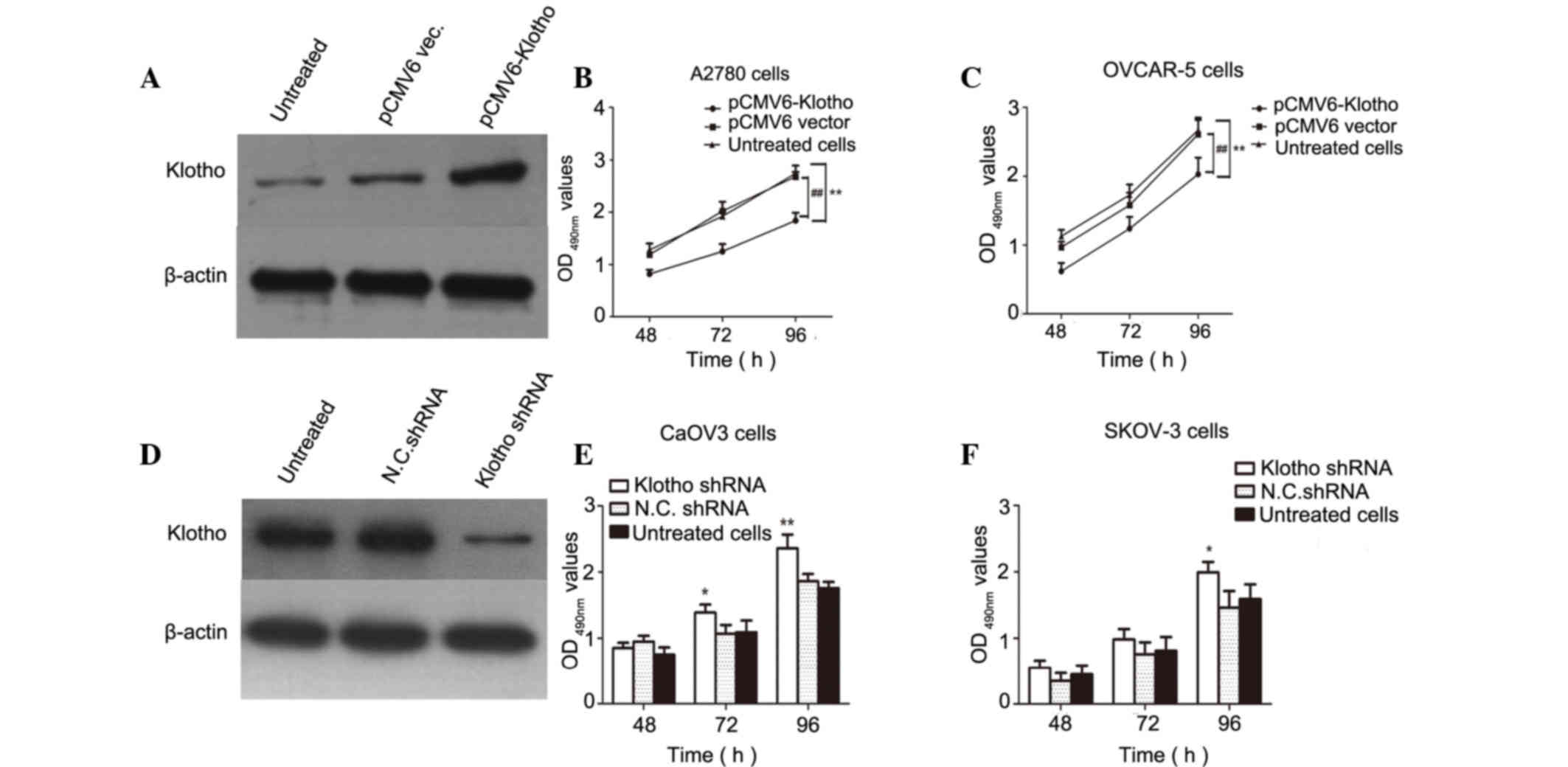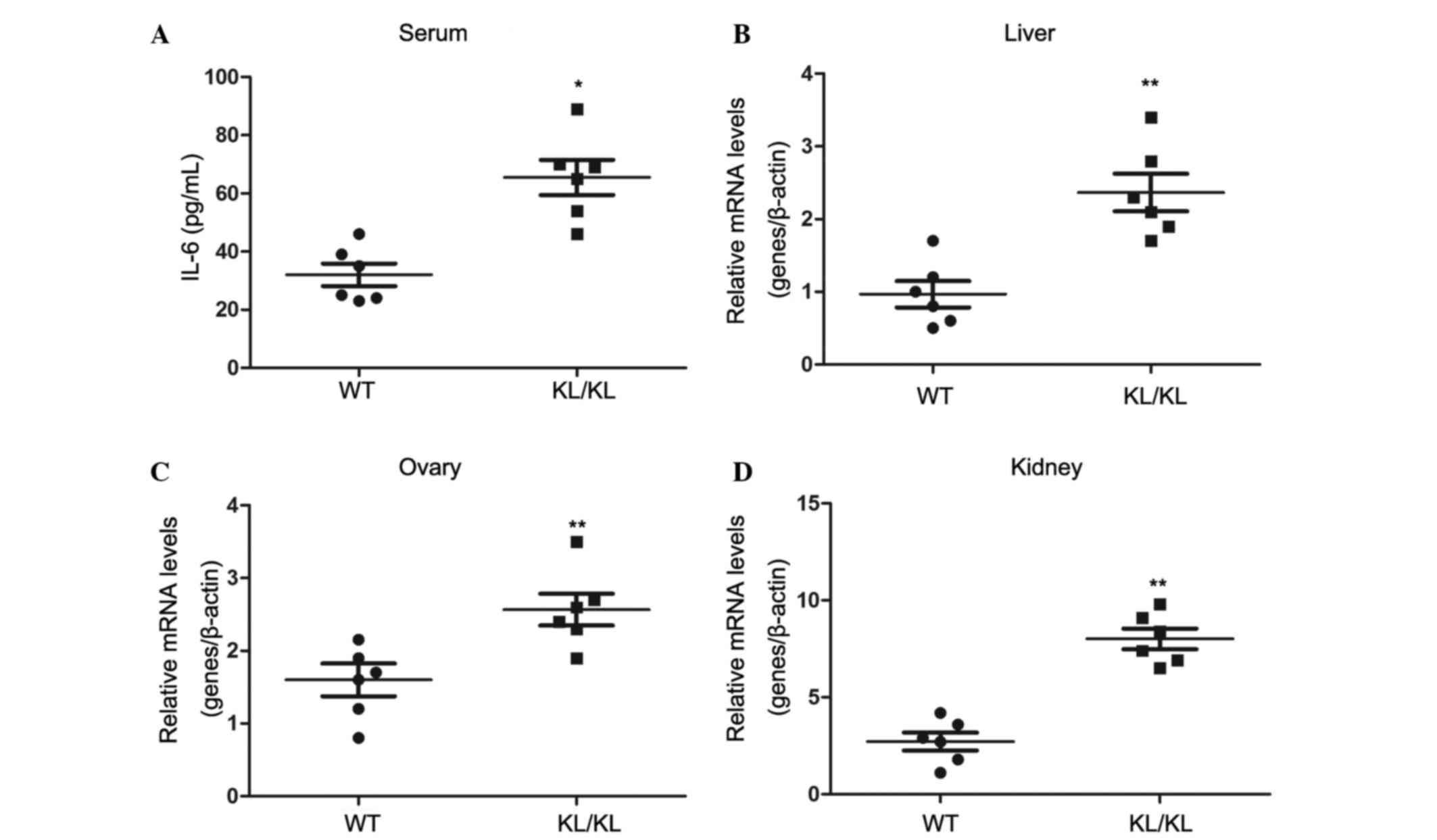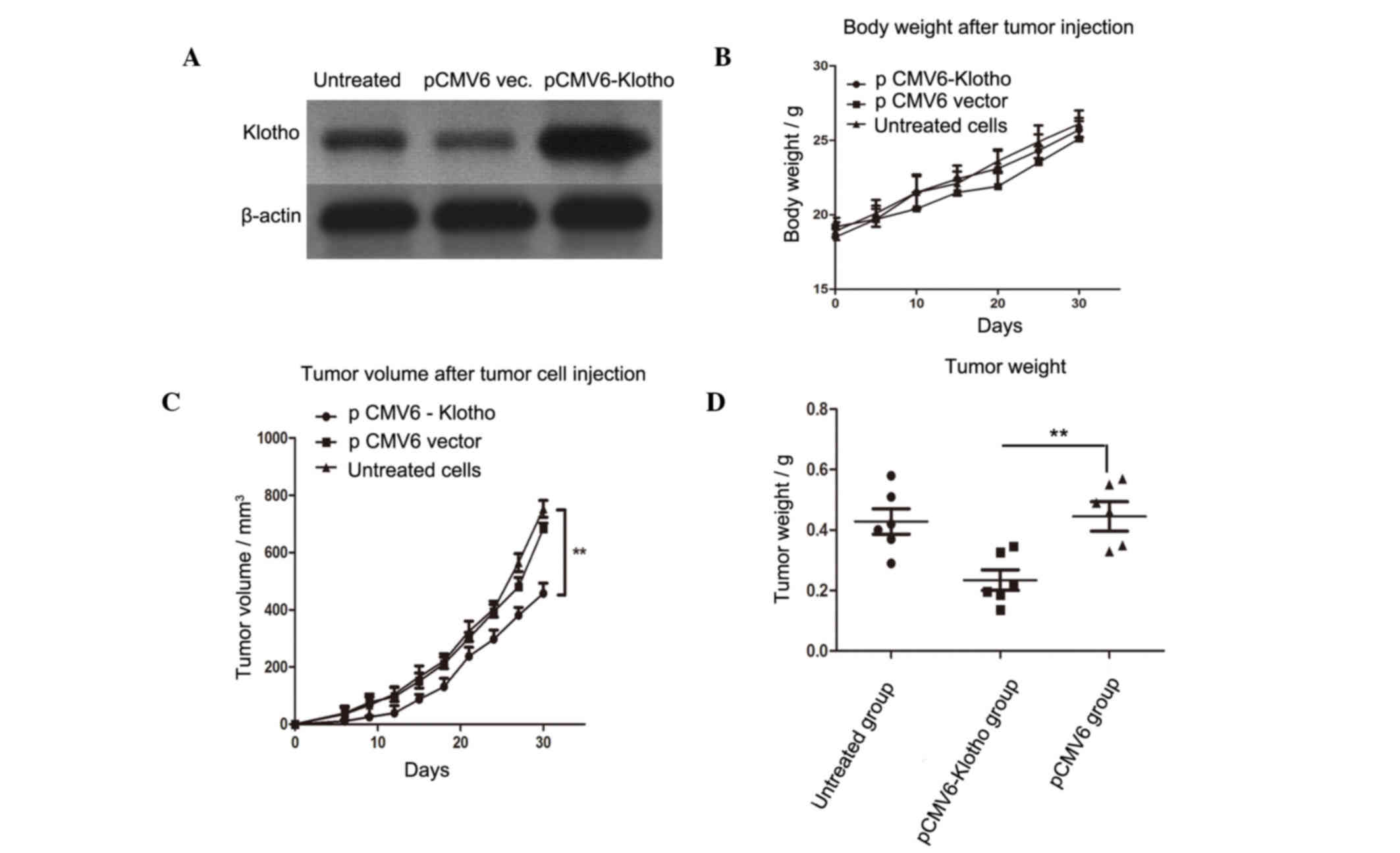|
1
|
Yahata T, Banzai C and Tanaka K: Niigata
Gynecological Cancer Registry: Histology-specific long-term trends
in the incidence of ovarian cancer and borderline tumor in Japanese
females: A population-based study from 1983 to 2007 in Niigata. J
Obstet Gynaecol Res. 38:645–650. 2012. View Article : Google Scholar : PubMed/NCBI
|
|
2
|
Maksimović M, Maksimović M, Gojnić M,
Maksimović Z, Petković S, Ljubić A, Stefanović A and Jeremić K:
Surgical treatment of ovarian cancer and early detection of venous
thromboembolism. Eur J Gynaecol Oncol. 32:415–418. 2011.PubMed/NCBI
|
|
3
|
Chen M, Jin Y, Bi Y, Li Y, Shan Y and Pan
L: Prognostic significance of lymphovascular space invasion in
epithelial ovarian cancer. J Cancer. 6:412–419. 2015. View Article : Google Scholar : PubMed/NCBI
|
|
4
|
Lloyd KL, Cree IA and Savage RS:
Prediction of resistance to chemotherapy in ovarian cancer: A
systematic review. BMC Cancer. 15:1172015. View Article : Google Scholar : PubMed/NCBI
|
|
5
|
Bacalbaşa N and Popescu I: Ovarian cancer
liver metastases - should we apply the principle of optimal
cytoreduction to the liver? A review. Hepatogastroenterology.
62:355–357. 2015.PubMed/NCBI
|
|
6
|
Rooth C: Ovarian cancer: Risk factors,
treatment and management. Br J Nurs. 22:S23–S30. 2013. View Article : Google Scholar : PubMed/NCBI
|
|
7
|
Liu XH, Man YN and Wu XZ: Recurrence
season impacts the survival of epithelial ovarian cancer patients.
Asian Pac J Cancer Prev. 15:1627–1632. 2014. View Article : Google Scholar : PubMed/NCBI
|
|
8
|
Dërmaku-Sopjani M, Kolgeci S, Abazi S and
Sopjani M: Significance of the anti-aging protein Klotho. Mol Membr
Biol. 30:369–385. 2013. View Article : Google Scholar : PubMed/NCBI
|
|
9
|
Zeng Y, Wang PH, Zhang M and Du JR:
Aging-related renal injury and inflammation are associated with
downregulation of Klotho and induction of RIG-I/NF-κB signaling
pathway in senescence-accelerated mice. Aging Clin Exp Res.
28:69–76. 2016. View Article : Google Scholar : PubMed/NCBI
|
|
10
|
Banerjee S, Zhao Y, Sarkar PS, Rosenblatt
KP, Tilton RG and Choudhary S: Klotho ameliorates chemically
induced endoplasmic reticulum (ER) stress signaling. Cell Physiol
Biochem. 31:659–672. 2013. View Article : Google Scholar : PubMed/NCBI
|
|
11
|
Huang CL: Regulation of ion channels by
secreted Klotho. Adv Exp Med Biol. 728:100–106. 2012. View Article : Google Scholar : PubMed/NCBI
|
|
12
|
Kuro-o M: Klotho and aging. Biochim
Biophys Acta. 1790:1049–1058. 2009. View Article : Google Scholar : PubMed/NCBI
|
|
13
|
Lojkin I, Rubinek T, Orsulic S,
Schwarzmann O, Karlan BY, Bose S and Wolf I: Reduced expression and
growth inhibitory activity of the aging suppressor klotho in
epithelial ovarian cancer. Cancer Lett. 362:149–157. 2015.
View Article : Google Scholar : PubMed/NCBI
|
|
14
|
Wolf I, Levanon-Cohen S, Bose S, Ligumsky
H, Sredni B, Kanety H, Kuro-o M, Karlan B, Kaufman B, Koeffler HP
and Rubinek T: Klotho: A tumor suppressor and a modulator of the
IGF-1 and FGF pathways in human breast cancer. Oncogene.
27:7094–7105. 2008. View Article : Google Scholar : PubMed/NCBI
|
|
15
|
Zhou X and Wang X: Klotho: A novel
biomarker for cancer. J Cancer Res Clin Oncol. 141:961–969. 2015.
View Article : Google Scholar : PubMed/NCBI
|
|
16
|
Xie B, Chen J, Liu B and Zhan J: Klotho
acts as a tumor suppressor in cancers. Pathol Oncol Res.
19:611–617. 2013. View Article : Google Scholar : PubMed/NCBI
|
|
17
|
Lee J, Jeong DJ, Kim J, Lee S, Park JH,
Chang B, Jung SI, Yi L, Han Y, Yang Y, et al: The anti-aging gene
KLOTHO is a novel target for epigenetic silencing in human cervical
carcinoma. Mol Cancer. 9:1092010. View Article : Google Scholar : PubMed/NCBI
|
|
18
|
Lu L, Katsaros D, Wiley A, de la Longrais
IA, Puopolo M and Yu H: Klotho expression in epithelial ovarian
cancer and its association with insulin-like growth factors and
disease progression. Cancer Invest. 26:185–192. 2008. View Article : Google Scholar : PubMed/NCBI
|
|
19
|
Saleem M, Maddodi N, Abu Zaid M, Khan N,
bin Hafeez B, Asim M, Suh Y, Yun JM, Setaluri V and Mukhtar H:
Lupeol inhibits growth of highly aggressive human metastatic
melanoma cells in vitro and in vivo by inducing apoptosis. Clin
Cancer Res. 14:2119–2127. 2008. View Article : Google Scholar : PubMed/NCBI
|
|
20
|
Adhami VM, Siddiqui IA, Ahmad N, Gupta S
and Mukhtar H: Oral consumption of green tea polyphenols inhibits
insulin-like growth factor-I-induced signaling in an autochthonous
mouse model of prostate cancer. Cancer Res. 64:8715–8722. 2004.
View Article : Google Scholar : PubMed/NCBI
|
|
21
|
Spinner DM: MTT growth assays in ovarian
cancer. Methods Mol Med. 39:175–177. 2001.PubMed/NCBI
|
|
22
|
Sargent J, Elgie A, Taylor CG, Wilson J,
Alton P and Hill JG: The identification of drug resistance in
ovarian cancer and breast cancer: Application of the MTT assay.
Contrib Gynecol Obstet. 19:64–75. 1994.PubMed/NCBI
|
|
23
|
Ebell MH, Culp M, Lastinger K and Dasigi
T: A systematic review of the bimanual examination as a test for
ovarian cancer. Am J Prev Med. 48:350–356. 2015. View Article : Google Scholar : PubMed/NCBI
|
|
24
|
Ozga M, Aghajanian C, Myers-Virtue S,
McDonnell G, Jhanwar S, Hichenberg S and Sulimanoff I: A systematic
review of ovarian cancer and fear of recurrence. Palliat Support
Care. 13:1771–1780. 2015. View Article : Google Scholar : PubMed/NCBI
|
|
25
|
Iżycka N, Lubin J, Markowska A and
Markowska J: Late recurrence of ovarian cancer: A literature review
and description of two cases. Eur J Gynaecol Oncol. 36:351–353.
2015.PubMed/NCBI
|
|
26
|
Martín-Núñez E, Donate-Correa J,
Muros-de-Fuentes M, Mora-Fernández C and Navarro-González JF:
Implications of Klotho in vascular health and disease. World J
Cardiol. 6:1262–1269. 2014. View Article : Google Scholar : PubMed/NCBI
|
|
27
|
Wang Y, Chen L, Huang G, He D, He J, Xu W,
Zou C, Zong F, Li Y, Chen B, et al: Klotho sensitizes human lung
cancer cell line to cisplatin via PI3k/Akt pathway. PloS One.
8:e573912013. View Article : Google Scholar : PubMed/NCBI
|















